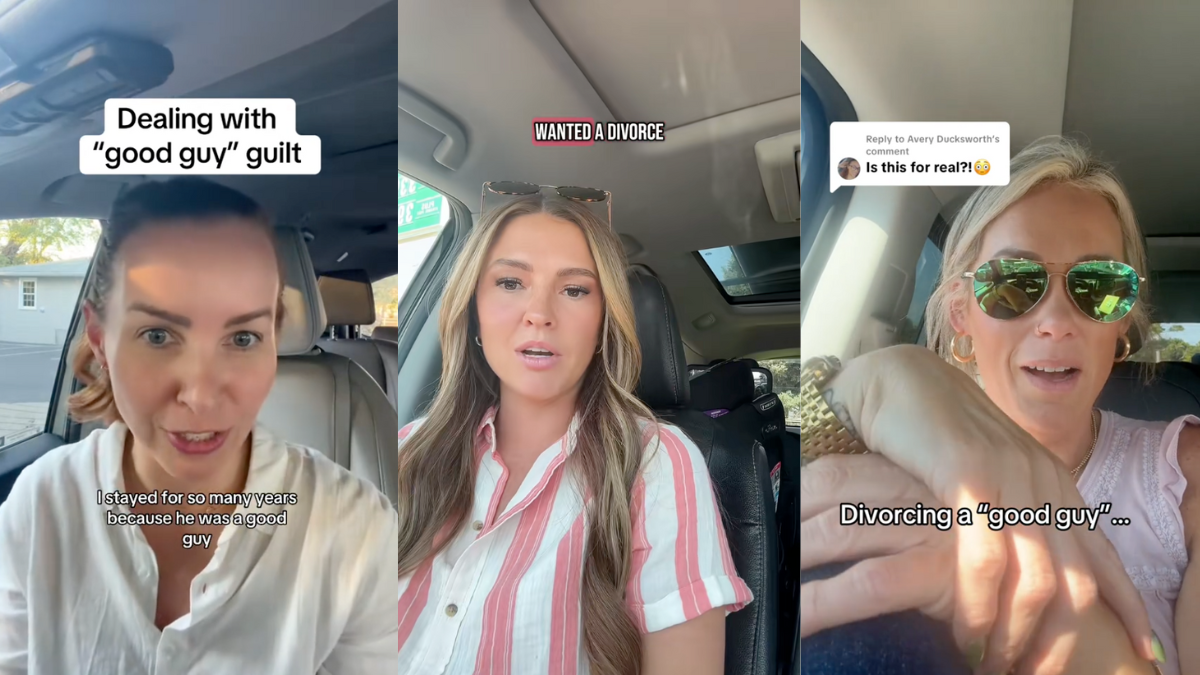Marriage-Destroying Author Wonders Where Good Guys Are
The summary discusses a recent article by Jean Garnett titled “The Trouble With Wanting Men,” which portrays modern dating, especially for middle-aged women, as a difficult and disappointing experience. Garnett, recently divorced after an open marriage ended partly due to her involvement with a noncommittal partner, laments the scarcity of men willing to engage seriously in relationships. The commentary highlights how many men use excuses like anxiety to avoid commitment, masking selfishness with therapeutic language. It argues that the so-called “good men”-those genuinely committed-are often already married and not part of the contemporary hookup culture Garnett navigates. The piece critiques the cultural shifts brought on by sexual liberalism, suggesting that the promise of freedom and pleasure has proven false, as genuine love requires commitment and sacrifice. The author contends that traditional Christian sexual morality, emphasizing marital exclusivity, protects human well-being and fosters authentic love. Garnett’s struggles exemplify the broader cultural consequences of abandoning these values, resulting in a painful relational surroundings rather than liberation.
Some of the more vindictive church fathers thought the pleasures of heaven included watching the punishment of the damned. The idea is theologically dubious, but a preview of what it would be like is available for us through The New York Times.
Consider a recent piece by Jean Garnett titled “The Trouble With Wanting Men,” which portrays the sexual and relational landscape as a hellscape, or at least a dreary purgatory in which Garnett longs for men who are just not that into her. She is, as she eventually explained, on the dating scene because she recently divorced after her “open” marriage fell apart partially because she fell in love with a paramour who had no interest in a relationship. One writer on X was quick to point out that Garnett had written a long, positive piece about said open marriage only a few years ago.
Now, Garnett is learning a painful lesson, as seen in her account of how she and her friends commiserate together, wondering, “Where were the men who could handle hard stuff? Like leaving the house for sex?” The answer should be obvious: Ladies, you’re competing with younger women — and endless internet porn — for the attention of guys who do not want a relationship. Even if you were once irresistible to men, did you really think you would remain so forever?
It is darkly humorous how these men have learned to use therapy-speak to dull the edge of the proverbial fury of a woman scorned. Garnett recounts one guy she hooked up with texting her the next week, “I was really looking forward to seeing you again … but I’m going through some intense anxiety today and need to lay low :(.” She reports that she replied, “Totally understand,” but tells her readers that she “didn’t. Feeble, fallible ‘looking forward’ is not longing; a man should want me urgently or not at all.” Well, this guy clearly doesn’t want her — not really.
But Garnett doesn’t seem to get this, writing that, “lately I have been bruised by the ambivalence of men, how they can first want me and then become confused about what they want.” Again, they’re not confused. They’ve just learned that saying they are anxious and confused provides cover when they want to keep women of Garnett’s type at arm’s length.
It seems to be working. Though she wants to blame men for her miserable dating life, Garnett still writes that “the men my friends and I are feeling bleak about” are “the sweet, good ones. Dammit.” Of course, they aren’t sweet or good. They are selfish through and through. They’ve just learned that they can get away with that selfishness as long as they cover it with therapeutic language while telling women not to expect much from them. And yet Garnett and her friends are somehow disappointed when the little they are promised is all they get.
In truth, the “good guys” aren’t the ones using anxiety as an excuse to ditch their middle-aged hook-ups. Indeed, the really good ones are, by Garnett’s age, mostly off the market. They aren’t hooking up with bitter writers. Rather, they are going to church and raising their children and are still married to their first wives. Those are the good ones. What Garnett is sifting through are the dregs — maybe superficially attractive dregs, but still the dregs — and dregs that have no intention of settling down with her.
This reality almost breaks through when Garnett reflects on the affair that ended her marriage:
“[T]hroughout the year and a half or so that we saw each other, he continued to gesture to his incapacity to commit as if it were a separate being, an unfortunate child who followed and relied upon him, maybe, or a physical constraint. I stood there reaching for him while he sad-faced back at me like a boxed mime: He couldn’t talk about it; he wished things were different; maybe someday the child would mature, the glass would break, but for now, there was really nothing to be done.
It seems to me, surveying the field as a dating novice, that this kind of studiously irreproachable male helplessness abounds. I keep encountering and hearing about men who ‘can’t.’ Have these men not heard of ‘don’t want to?’
Oh, they know about it. “Don’t want to” is indeed at the root of their refusal to commit to women such as Garnett. But anxiety and helplessness are palatable excuses, ones that women such as Garnett buy, or at least lease, because the alternative — realizing that she just isn’t that desirable and most of the good men are long gone anyway — is too painful.
And so, after a long wander looking for an “ism” to explain what’s wrong with her love life, in the final paragraph, she turns to the words of a friend: “’The old way of mating is dead,’ said my friend at our colloquy of female complaint over dinner, ‘and the new one has yet to be born.’”
Garnett and her friend believe this may give some comfort in their relational wasteland, but in truth, the old ways are alive. Plenty of people still get married and remain happily and faithfully married. But she is right that the old ways are not alive for everyone — not for as many people as they should be. And that’s the big picture explanation that Garnett struggled to identify.
Garnett’s present unhappiness is a result of the ideology and behaviors she has promoted. The immediate cause of her unhappiness is that she’s a middle-aged woman hooking up with noncommittal men. The more comprehensive cause is the culture she has marinated in and furthered. She obviously yearns for the “old-fashioned man-woman stuff” she wants to dismiss. And she should — she was made for it. But our culture encourages people to give their bodies quickly and their hearts slowly, if at all. This divides the person and precludes genuine love, which requires the gift of the whole self. This is why Christian sexual morality — and the marital sexual exclusivity it requires — is not a killjoy. Rather, it is a protector and promoter of human well-being. It directs us toward our good and the good of others.
The freedom, pleasure, and authentic flourishing the sexual revolution promised were lies and are why sexual liberation has hurt so many people. Sexual liberalism presumes that we thrive as autonomous pleasure seekers, unconstrained by norms or obligations. But this is false. We thrive through love, and real love, including romantic and sexual love, requires real commitment. This, in turn, protects people by directing them toward their long-term fulfillment and happiness.
Garnett’s story illustrates how abandoning this, both personally and as a culture, is immiserating rather than liberating. It is a sad tale, perhaps salutary as a warning, but there is no joy to be had in watching the suffering — however self-inflicted — of our culture’s romantic hellscape.
Nathanael Blake is a senior contributor to The Federalist and a fellow in the Life and Family Initiative at the Ethics and Public Policy Center. He is the author of “Victims of the Revolution: How Sexual Liberation Hurts Us All” (Ignatius, 2025).
" Conservative News Daily does not always share or support the views and opinions expressed here; they are just those of the writer."




